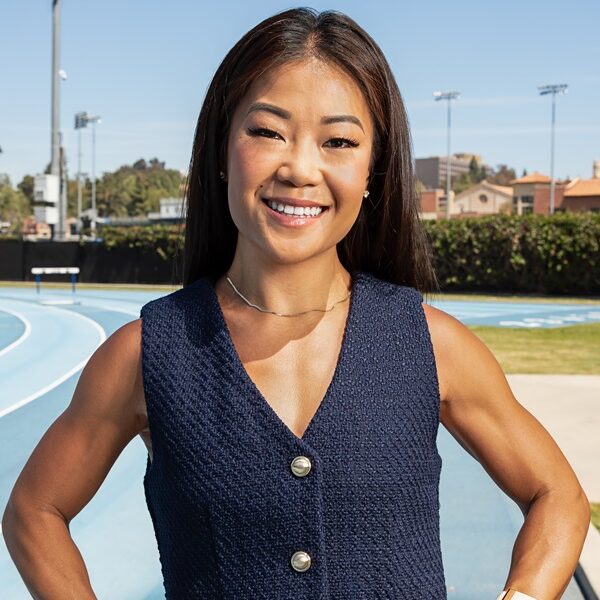Insight into Diversity June 2024 Report: Unpacking the Need for Advocacy PDF
Insight into Diversity June 2024 Report: Unpacking the Need for Advocacy Digital Issue
By: Nikki Brahm
Read the original article on Insight into Diversity.
Several years ago, Catarina Gerges’ mother sustained severe injuries in a car accident and was subsequently diagnosed with fibromyalgia, a condition that causes frequent pain throughout the body.
“As a consequence of the invisible nature of fibromyalgia, I grew up witnessing the accommodations, which my mom had a legal right to, be outright denied to her because she ‘doesn’t look disabled,’” says Gerges.
When Gerges took her first class on disability studies at the University of California, Los Angeles (UCLA), she was prompted to reflect on her past experiences and realized how passionate she is about the topic.
At that time, Gerges had declared a minor in disability studies and a major in neuroscience. However, when UCLA launched the disability studies major last fall, Gerges declared it as her second major; she plans to use her degree to raise awareness about disabilities.
While disability studies minors have existed for some time, there are only a handful of such bachelor’s programs across the country. UCLA’s was created 16 years after the university’s minor was introduced, and is the first of its kind at a public university in the state of California.
The major was developed thanks to advocacy by faculty, students, the Disabled Student Union, and the UCLA Office of Equity, Diversity and Inclusion, to advance the recognition of disability as part of civil rights issues on campus, says Victoria Marks, chair of the new program and faculty director of the Dancing Disability Lab.
The curriculum focuses on the concept of the social model of disability, which is the idea that the barriers people with disabilities face are caused by society rather than by their disability. Instead of the misconception that a disability must be treated or cured, this model focuses on building systems of inclusion, Marks says.
“How do we construct the physical world so that everyone has equal access to participation and also access to education, access to health care, access to careers and work opportunities?” Marks asks. “[The concept] of normal, or this striving to be normal as it becomes a sort of ideal of our population, is constructed. So how do we deconstruct that?”
The major is interdisciplinary, with classes focused on a wide range of topics, says Brooke Wilkinson, director of academic initiatives in the Division of Undergraduate Education. Some subject matters include disability literature, enforcing normalcy, gender and disabilities, bioethics of health and disability, and rechoreographing disability.
Further education comes from the UCLA Disability Studies Inclusion Labs, which offer interactive activities, workshops, seminars, and conferences. Students also are also required to take on two quarterlong internships, such as with a legal rights center, at local schools, or with area nonprofits.
Gerges’ internship with the Disabilities and Computing Program (DCP) allowed her to remediate UCLA documents to make them compatible for all types of accommodations. She also collected data for the DCP’s MetaMap project, a resource that shows the location of all bathrooms on the UCLA campus that are ADA (Americans with Disabilities Act) accessible.
The broad scope of the program, and the ability to pursue a double major, enables students to enter careers across a wide range of fields, Wilkinson adds.
“The structure of the program [allows] students [to] select their courses to a certain degree, their internship, their research, around an area that they have interest in so they can tailor [their experience],” she says.
The institution continues to support the consideration of disability in all of its dimensions, which is reflected in the university’s latest strategic plan, says Marks. Recently, funding was allocated for two new disability studies faculty positions. In addition, new initiatives are advancing across campus, including the new Inclusion Lab known as Legacy and Futures: The Judith E. Heumann Community Partnerships.



